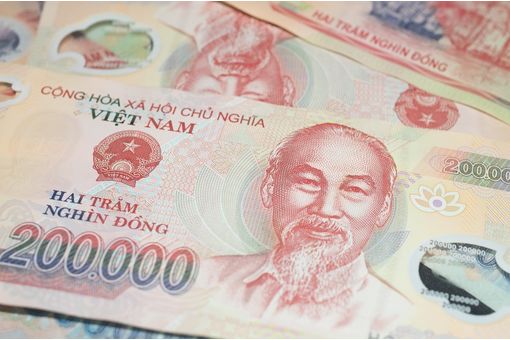Copenhagen FW spotlights 2023's major EU fashion industry legislation

Insights
- Copenhagen Fashion Week highlighted significant European Union (EU) legislative changes affecting the fashion industry, including new directives for sustainable waste management and product transparency.
- These changes emphasise stricter environmental accountability and enhanced sustainability practices in textile production and labelling.
The European Commission's proposal to amend the Waste Framework Directive marked a key change, targeting the textile industry specifically. This amendment aims to harmonise the various Extended Producer Responsibilities (EPRs) used across different EU member states. The new regulation on waste shipments is designed to promote sustainable textile waste management in the EU. It encourages producers to minimise waste and extend product longevity, making them responsible for the costs of managing textile waste. These costs will depend on eco-modulation, determined by factors like material choice, product circularity, supply chain diligence, and the accuracy of consumer information, Copenhagen Fashion Week said in its policy bulletin.
The Waste Framework Directive on waste shipments, adopted in 2021, was established to encourage a circular economy within the EU and to prevent the export of textile waste to the Global South. This directive introduces the concept of EPR, which places the onus on producers for the entire lifecycle of textile products, including design, waste, and recycling. By January 1, 2025, EU member states must set up systems for separate textile waste collection. Under this directive, each country will implement its own EPR system, and fashion brands will be required to participate in these systems in each country they operate. This means fashion brands must create a closed-loop supply chain to ensure the collection and recycling of their products.
Another significant development is the Ecodesign for Sustainable Products Regulation (ESPR), expanding from covering just energy-related products to include textiles. This regulation is set to revolutionise product design, emphasising durability, recyclability, and the inclusion of recycled materials. The regulation will also introduce the Digital Product Passport, facilitating easier repair, recycling, and tracking of substances used in the supply chain.
The Digital Product Passport will significantly impact the fashion and textile industry in the European market. It is a digital tool that provides detailed information about a product's environmental impact throughout its lifecycle. Each product will need to include a machine-readable passport, like a QR code, linked to a unique ID. This passport will detail various aspects of the product, including its durability, reusability, repairability, recycled content percentage, carbon footprint, and circularity performance. These elements will assess the product's recyclability and overall environmental sustainability. Further details on the Digital Product Passport are expected in 2024, though the implementation date remains uncertain.
The Directive on Green Claims is also set to bring about significant change. It addresses the confusion caused by the plethora of environmental labels and the often misleading or unsupported green claims in the market. A significant number of these claims have been found to be vague, misleading, or unsubstantiated. Under this directive, any environmental claims, such as reduced carbon footprints, must be independently verified and scientifically backed.
The directive will also regulate the clarity of these claims and may restrict aggregate scoring of a product’s overall environmental impact. It aims to enhance the accuracy and reliability of information on product labels, especially regarding durability and repairability. All sustainability claims must be supported by data reviewed by third parties, using a standardised life cycle assessment methodology. Additionally, new labelling schemes will be subject to EU approval, ensuring they provide clear added value.
The European Commission plans to revise the current Textile Labelling Regulation by the end of 2023 to address its limitations and the confusion caused by the diverse labelling systems across the EU. The existing regulation, focused mainly on fibres, has not kept up with new fabric and recycling technology developments. The revision will introduce standards for both physical and digital labelling of textiles, requiring brands to adopt more comprehensive and standardised labelling practices. This will ensure consumers have accurate information about the composition and origin of textile products, leading to fairer competition and enhanced consumer confidence in their purchases.
The European Union is developing the Product Environmental Footprint Method (PEF) for the apparel and footwear sector, which will include various environmental indicators like carbon emissions, water usage, and energy consumption. This method will become increasingly crucial for fashion and textile brands once the Green Claims Directive is implemented. The directive, proposed by the commission in March 2023 and yet to be enacted, will likely require brands to integrate a carbon management tool in their operations. Consulting firm Deloitte anticipates that these requirements will come into effect from 2026.
The Corporate Sustainability Reporting Directive (CSRD), part of the Sustainable Finance Initiative but not the European Green Deal, mandates enhanced sustainability reporting for companies. This directive requires detailed disclosures on environmental, social, and governance (ESG) issues like greenhouse gas emissions, supply chain transparency, labour practices, and diversity initiatives.
Initially targeting large companies already under the NFRD, including those with over 500 employees, the CSRD will expand to cover all large companies and eventually, on a voluntary basis, small and medium-sized enterprises (SMEs). The goal is to avoid overwhelming smaller businesses with rigorous reporting demands. Reporting under the CSRD will start gradually from 2024, with reports published in 2025, and the EU is developing the European sustainability reporting standards (ESRS) as a framework for ESG disclosure.
The Corporate Sustainability Due Diligence Directive (CSDDD) will impact companies in high-impact sectors like fashion and textiles that have over 250 employees and a net turnover exceeding €40 million worldwide. This directive requires these companies to assess and mitigate the environmental and social impacts of their operations and supply chains, promoting responsible business practices, transparency, ethical sourcing, and sustainability.
The focus is on companies making significant efforts to improve their environmental and social impacts, not necessarily achieving specific results. For fashion brands, this means ensuring visibility and traceability in their value chains, developing due diligence policies, identifying and addressing human and environmental impacts, and publicly communicating these efforts. Once adopted by the EU (expected no earlier than 2024), member states will have two years to implement the CSDDD into national law, with the possibility of setting more stringent requirements.
Fibre2Fashion News Desk (DP)
































-Ltd..jpg?tr=w-120,h-60,c-at_max,cm-pad_resize,bg-ffffff)





.jpg?tr=w-120,h-60,c-at_max,cm-pad_resize,bg-ffffff)
.jpg?tr=w-120,h-60,c-at_max,cm-pad_resize,bg-ffffff)






